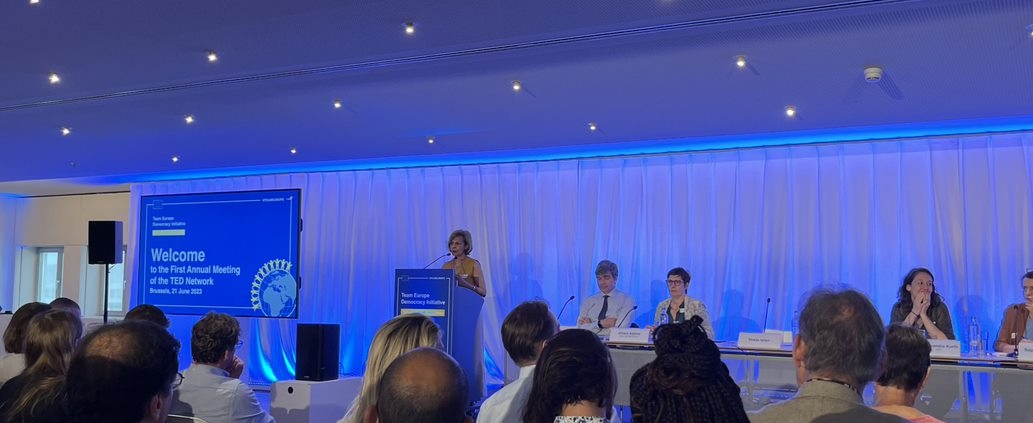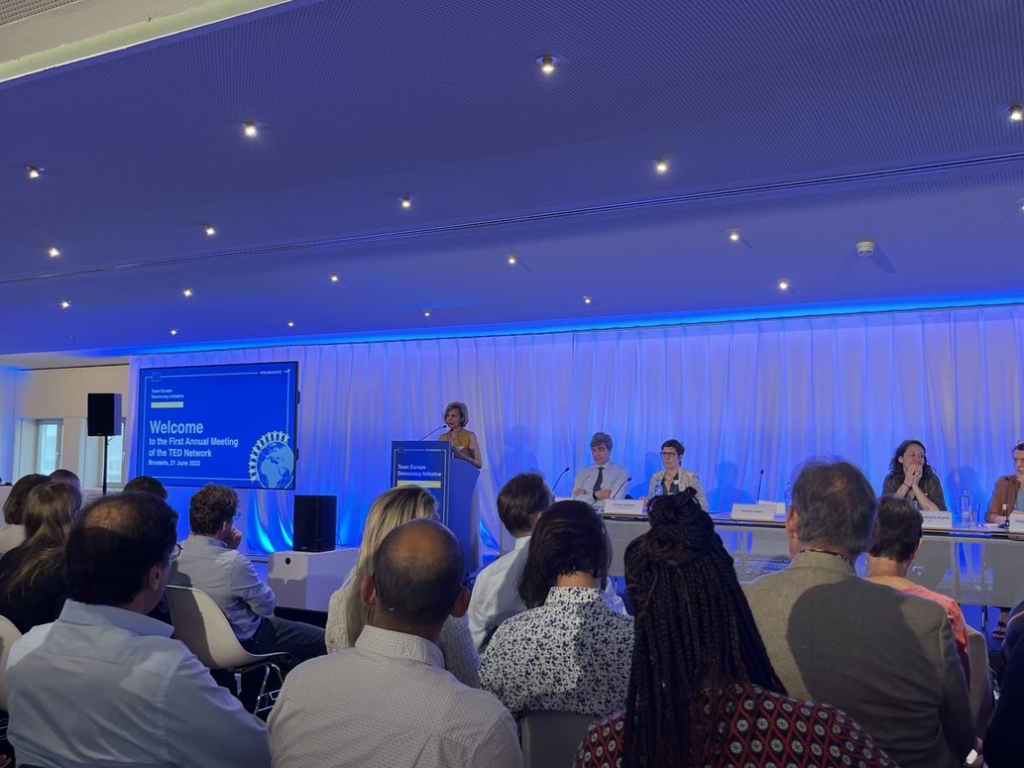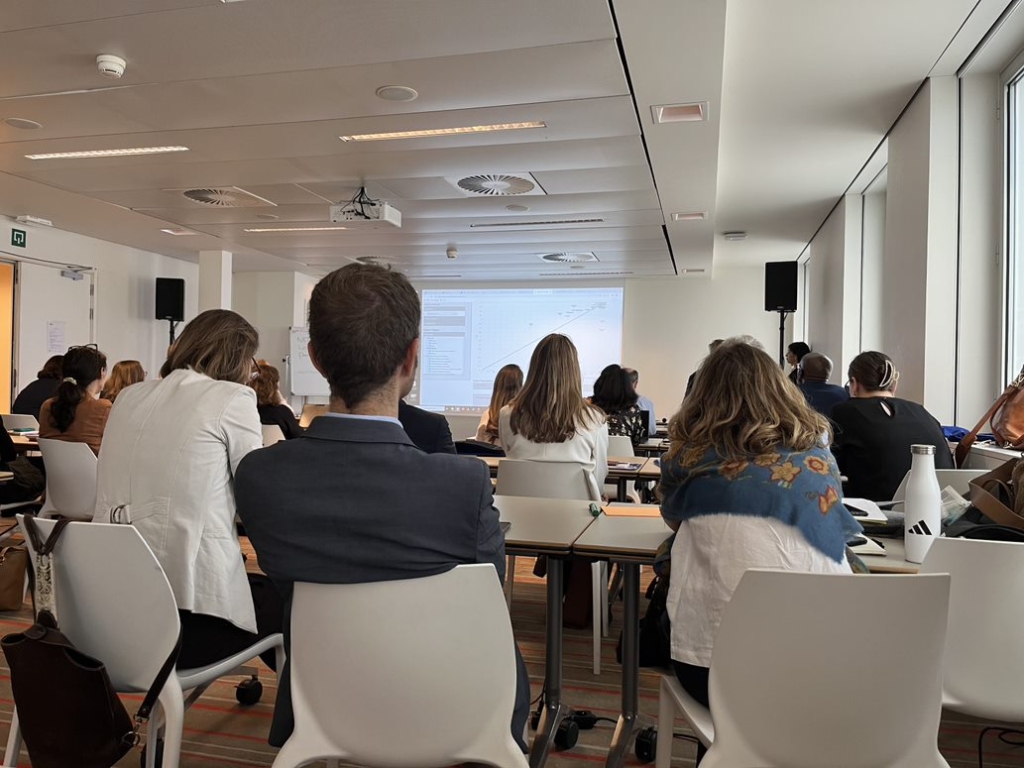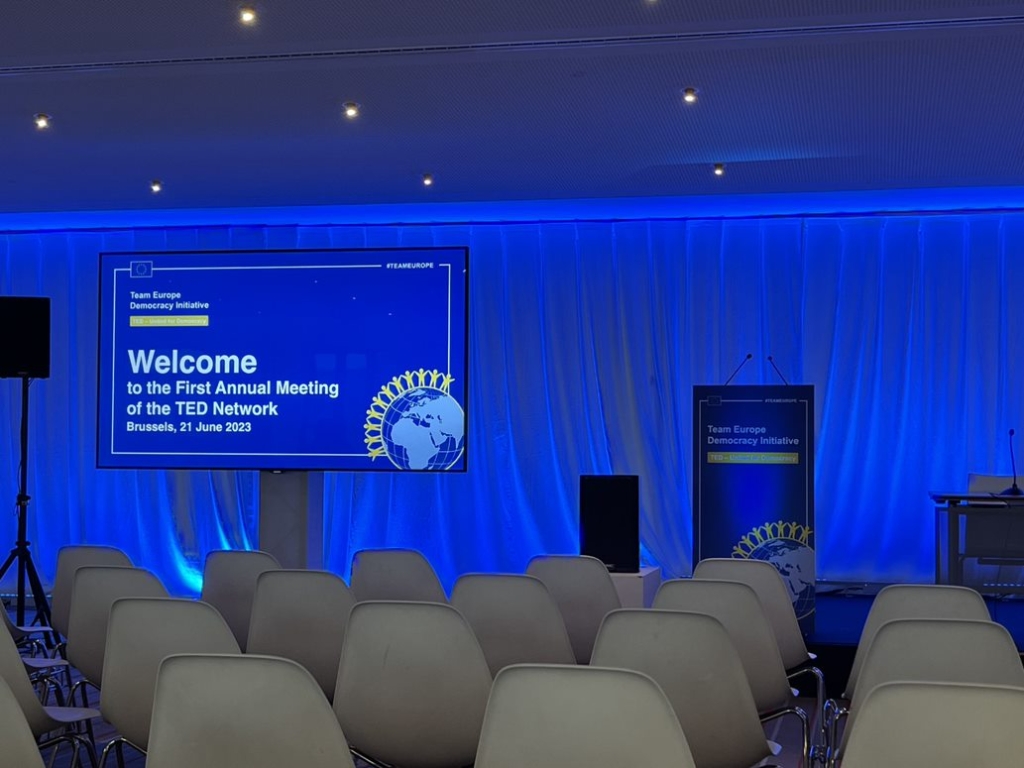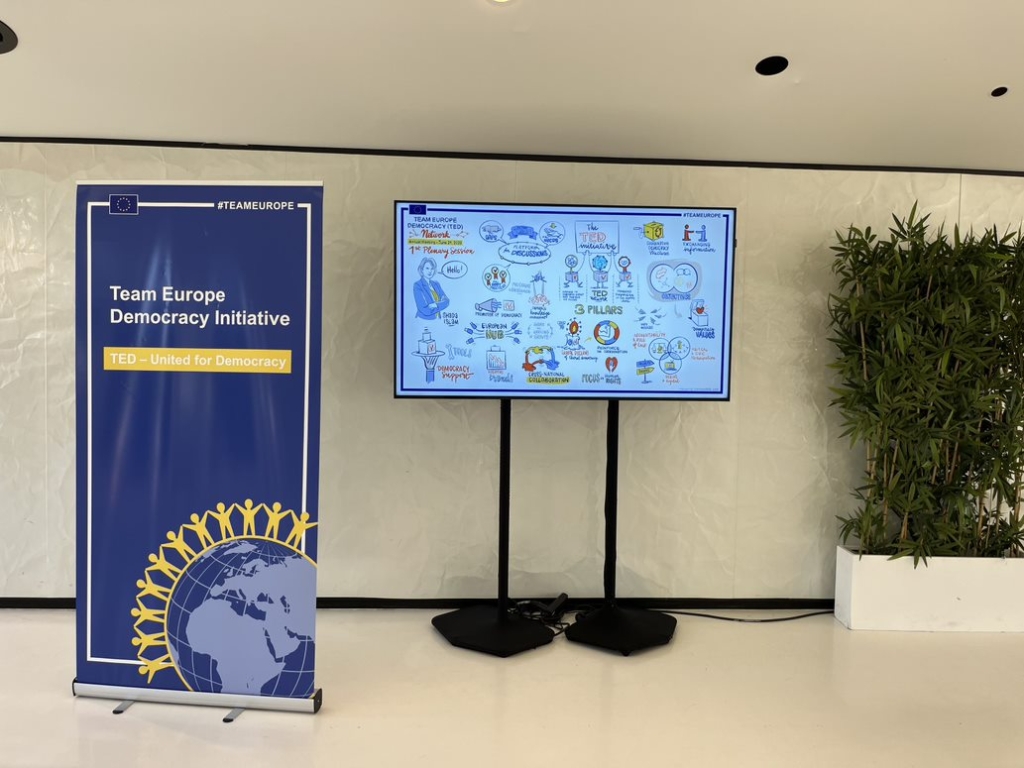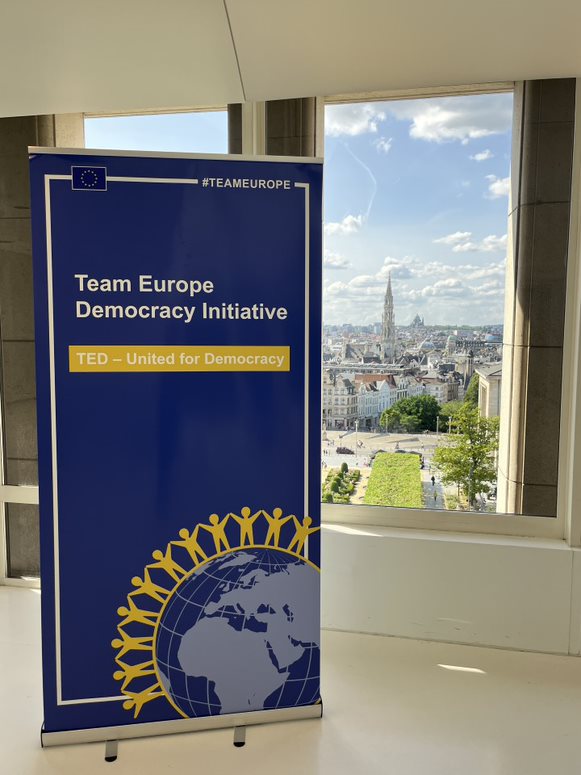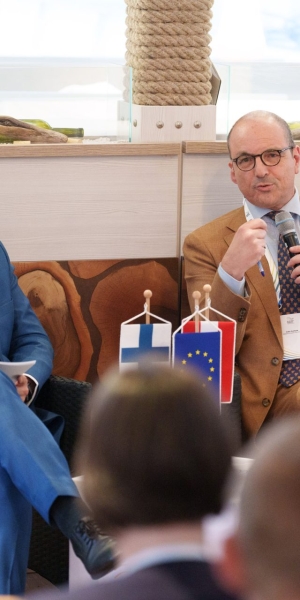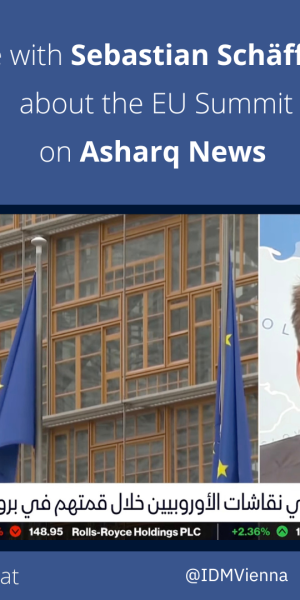United for Democracy: First annual meeting of the Team Europe Democracy Initiative (TED) Network
“The global level of democracy is back to 1986” – stated Staffan Lindberg, the Director of the V-Dem Institute of the University of Gothenburg, during his talk at the first TED Meeting in Brussels on 21 June 2023. In his presentation, he showcased graphs from the V-Dem Democracy report, underscoring this concerning reality. In 2022, the average number of people living in liberal democracies declined to the level seen in 1986, a year marked by the Cold War and the Reykjavik summit meeting between Gorbachev and Reagan. The progress achieved since then in shaping and strengthening democracies now appears to be crumbling – beyond the borders of the European Union but also within the EU itself. We are witnessing the constriction of fundamental freedoms, power centralisation and the rise of autocracy in many countries around the world.
To counter such alarming trends, the European Commission and 14 Member States launched the thematic initiative Team Europe Democracy (TED) in 2021. It aims to actively promote democracy, human rights, and more effective interventions in support of democracy worldwide, and it seeks to provide a platform for experts to exchange ideas and collaborate on these topics. Furthermore, it wants to serve as an interface between EU institutions, Member States, think tanks and NGOs. The TED initiative is built upon three interconnected pillars, which should complement one another: 1) research on democratic support best practices and policies, 2) the TED Network, and 3) providing expertise at the country level.
As part of the TED network, the IDM received an invitation to take part in the first annual meeting. IDM Research Associate Sophia Beiter attended the meeting, the primary goals of which were to provide information about the initiative, to start the networking activities and to jointly develop a working plan for the following year. Participants contributed ideas for the working plan, focusing on three thematic areas: 1) Accountability and Rule of Law, 2) Political and Civic Participation, and 3) Media and Digital.

